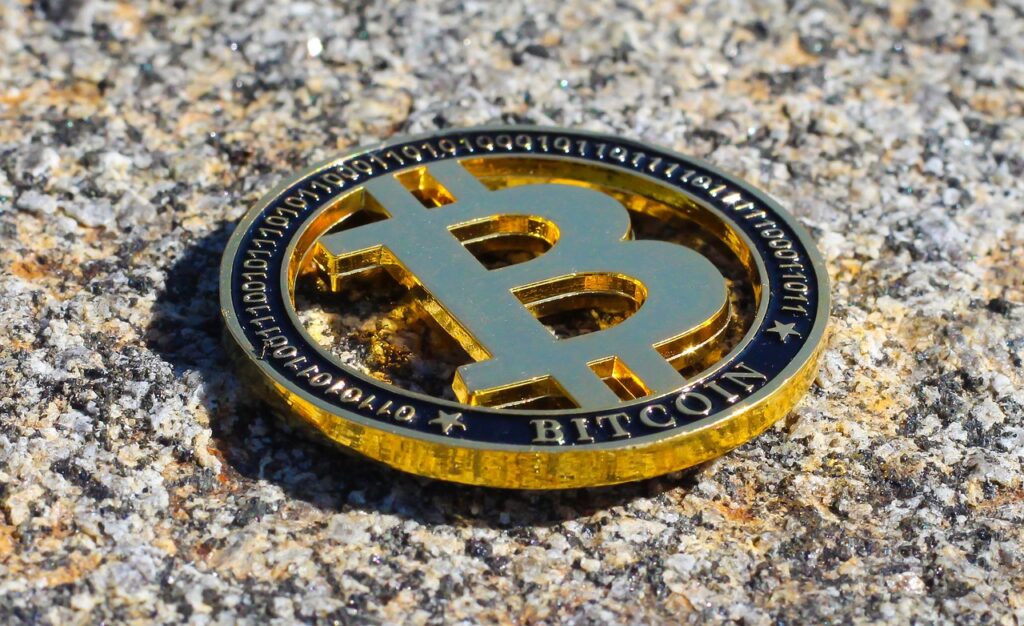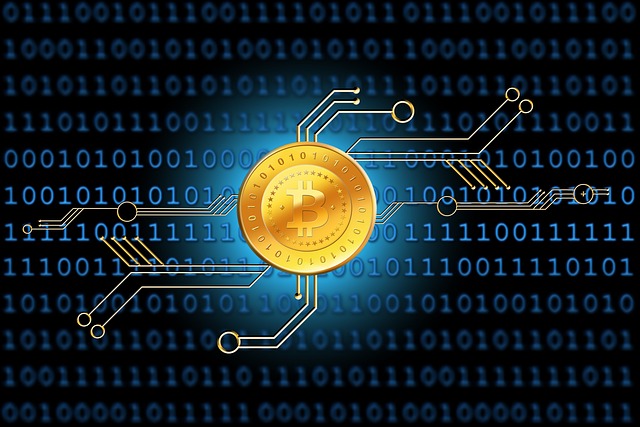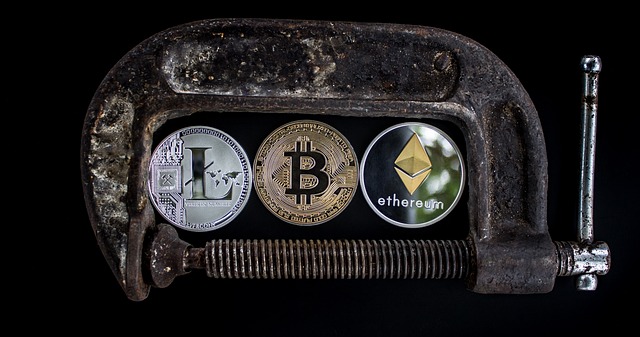Decentralized Finance: Weighing the Pros and Cons for Investors
Decentralized Finance: Weighing the Pros and Cons for Investors

What is Decentralized Finance?
Decentralized Finance, commonly referred to as DeFi, is an emerging concept that is revolutionizing the world of finance. Unlike traditional financial systems that rely on centralized intermediaries like banks or financial institutions, DeFi operates on blockchain technology, which eliminates the need for intermediaries and allows for direct peer-to-peer transactions. In simpler terms, DeFi is all about cutting out the middleman and enabling individuals to have greater control over their finances.
At its core, DeFi encompasses a wide range of financial applications and services that are decentralized and operate autonomously. These include lending and borrowing platforms, decentralized exchanges, yield farming, and smart contracts, just to name a few. By leveraging the power of blockchain technology, DeFi offers several key advantages. Firstly, it provides users with unprecedented financial freedom and accessibility. Anyone with an internet connection can access and use DeFi platforms, regardless of their geographical location or status. Secondly, DeFi creates opportunities for individuals to earn passive income through various investment strategies, such as yield farming, where users can stake their cryptocurrencies to earn rewards. Lastly, DeFi promotes transparency by allowing users to track and verify transactions on the blockchain, ensuring a high level of trust and reducing the potential for fraud or manipulation.
• DeFi operates on blockchain technology, eliminating the need for intermediaries
• Allows for direct peer-to-peer transactions
• Gives individuals greater control over their finances
• Encompasses lending and borrowing platforms, decentralized exchanges, yield farming, smart contracts, and more
• Provides users with unprecedented financial freedom and accessibility
• Anyone with an internet connection can access and use DeFi platforms
• Creates opportunities for passive income through investment strategies like yield farming
• Promotes transparency by allowing users to track and verify transactions on the blockchain
Key Advantages of Decentralized Finance for Investors
Decentralized finance offers a range of key advantages for investors. Firstly, one of the most notable benefits is the opportunity for anyone, regardless of their background or financial status, to participate in the global financial systems. Traditional finance often presents barriers and exclusions that limit access to certain individuals or regions, but decentralized finance aims to break down these barriers and level the playing field. By leveraging blockchain technology, decentralized finance opens up new avenues for individuals to invest, lend, and earn passive income, creating a more inclusive and equitable financial ecosystem.
Another advantage of decentralized finance is the potential for higher returns on investments. In traditional finance, intermediaries such as banks, brokers, and other financial institutions play a significant role in facilitating transactions and managing investments. However, these intermediaries often come with hefty fees and can introduce inefficiencies into the process. With decentralized finance, transactions occur directly between individuals without the need for intermediaries. This not only reduces costs but also eliminates unnecessary complexity, enabling investors to potentially enjoy greater returns on their investments. Additionally, decentralized finance introduces innovative concepts such as yield farming and liquidity mining, which offer attractive incentives for investors seeking to maximize their earnings.
Potential Risks and Challenges of Decentralized Finance
Decentralized finance, or DeFi, has gained significant popularity in recent years for its potential to revolutionize the financial industry.

Another challenge that arises in DeFi is the issue of smart contract vulnerabilities. Smart contracts, which are automated and self-executing contracts, form the backbone of DeFi protocols. While these contracts offer efficiency and transparency, they are not immune to bugs or coding errors. A single mistake in the contract’s code can lead to severe consequences, such as the loss of funds or access to assets. Moreover, hackers are constantly searching for vulnerabilities in these contracts to exploit and steal funds. This highlights the importance of conducting rigorous security audits and ensuring the reliability of smart contracts before participating in any DeFi project.
Understanding the Role of Smart Contracts in Decentralized Finance
Smart contracts play a crucial role in decentralized finance, allowing for automated and transparent transactions without the need for intermediaries. These digital agreements are built on blockchain technology, enabling the execution of predefined terms and conditions in a secure and trustless manner. In the world of decentralized finance, smart contracts serve as the backbone of various financial applications, providing efficiency, reliability, and accessibility to users.
One of the primary benefits of using smart contracts in decentralized finance is the elimination of middlemen, such as banks or brokers. With traditional financial systems, transactions often involve multiple intermediaries, resulting in extended processing times and added costs. However, in decentralized finance, smart contracts cut out these intermediaries, enabling direct peer-to-peer transactions. This not only reduces transaction fees but also streamlines the entire process, making it faster and more efficient for users. Moreover, the absence of intermediaries enhances transparency, as all transaction details are recorded and can be audited on the blockchain, providing a higher level of accountability and security.
Exploring the Opportunities for Yield Farming in Decentralized Finance
Yield farming has become a popular and lucrative opportunity within the realm of decentralized finance (DeFi). By participating in yield farming, investors can earn passive income through the process of lending or staking their digital assets. This innovative practice allows individuals to maximize their returns by taking advantage of various DeFi protocols.
One of the key benefits of yield farming is the ability to earn high yields on invested assets. Unlike traditional financial institutions that often offer negligible interest rates, DeFi platforms provide significantly higher returns on investment. By leveraging the power of smart contracts and blockchain technology, yield farmers can earn substantial profits from their digital assets. Additionally, yield farming enables investors to diversify their portfolios and explore a wide range of opportunities within the decentralized ecosystem.
The Role of Decentralized Exchanges in the World of Finance
Decentralized exchanges (DEXs) have emerged as a crucial component in the world of finance, providing an alternative and innovative method of trading digital assets. These platforms operate on blockchain networks, allowing users to trade directly with each other without the need for intermediaries like traditional exchanges. By removing the middleman, DEXs offer greater transparency, security, and control over one’s assets.
One of the key advantages of decentralized exchanges is their ability to foster financial inclusivity. Unlike centralized exchanges that often require users to go through a complex registration process, DEXs enable anyone with an internet connection and a digital wallet to participate in trading. This opens up investment opportunities to a broader audience, including those who are unbanked or living in regions with limited access to traditional financial infrastructure. With decentralized exchanges, individuals can take advantage of the global nature of cryptocurrencies, enabling borderless transactions and financial empowerment for people around the world.
How Decentralized Finance Enhances Financial Inclusion
Decentralized finance (DeFi) has been hailed as a game-changer when it comes to financial inclusion. In traditional financial systems, there are various barriers that exclude a significant portion of the population from accessing basic financial services. However, DeFi has the potential to break down these barriers and empower individuals who have been left on the fringes.
One key way that DeFi enhances financial inclusion is by removing the need for intermediaries such as banks. In many countries, accessing banking services can be a challenging task, particularly for those in rural areas or with limited resources. With DeFi, individuals can directly access financial tools and services using just their smartphones and an internet connection. This level of accessibility allows people from all walks of life to participate in the global financial ecosystem, opening up opportunities for saving, investing, and accessing much-needed credit. By enabling direct peer-to-peer transactions, DeFi empowers individuals by giving them more control over their financial lives.
Exploring the Potential Impact of Decentralized Finance on Traditional Banking
As decentralized finance (DeFi) continues to gain traction and popularity, questions arise about its potential impact on traditional banking. While it is still early to gauge the full extent of this impact, it is evident that DeFi poses both opportunities and challenges in the realm of traditional banking.
One potential impact of DeFi on traditional banking is the disintermediation of financial services. DeFi enables individuals to access a wide range of financial services without the need for traditional intermediaries, such as banks. This could potentially affect the revenue streams of banks, as individuals may choose to directly engage with DeFi protocols for lending, borrowing, and other financial activities. Additionally, the lower costs associated with DeFi platforms may attract users who are seeking cheaper alternatives to traditional banking services. However, it is important to note that traditional banks have the advantage of regulatory oversight, reputation, and other aspects that may not be present in the relatively nascent DeFi industry. Thus, while DeFi has the potential to disrupt the traditional banking sector, it is likely that a coexistence between the two will evolve, with banks exploring ways to integrate DeFi into their existing frameworks.
The Importance of Security in Decentralized Finance
As investors increasingly embrace decentralized finance (DeFi), the importance of security cannot be overstated. While DeFi offers exciting opportunities for individuals to have greater control over their financial activities, it also exposes them to certain risks. One of the primary concerns in DeFi is the vulnerability of smart contracts to hacking and potential loss of funds. As these contracts are coded and executed on the blockchain, any flaw in the code can be exploited, leading to significant financial losses for investors. Additionally, the absence of a centralized authority overseeing transactions in DeFi creates a breeding ground for malicious actors seeking to exploit vulnerabilities in the system.
To address these security challenges, it is crucial for investors to exercise caution and adopt best practices when participating in DeFi. First and foremost, conducting thorough research before engaging with any DeFi project is essential.

Regulatory Considerations for Investors in Decentralized Finance
As with any investment, there are several regulatory considerations that investors should keep in mind when participating in decentralized finance (DeFi). One of the main challenges in this emerging space is the lack of clear regulatory guidelines. While this may provide more flexibility and freedom for investors, it also introduces a level of uncertainty and risk. It is important for investors to thoroughly research and understand the legal and regulatory framework in their jurisdiction before engaging in DeFi activities.
One key consideration is the potential for regulatory intervention and oversight. As the popularity of DeFi continues to grow, government authorities may begin to take a closer look at the sector and implement regulations to protect investors and maintain market stability. Investors should be prepared for potential regulatory changes and stay updated with any new developments that could impact their investments. Furthermore, they should also be cautious of participating in projects or platforms that operate in jurisdictions with loose or non-existent regulations, as this may expose them to higher levels of risk. Overall, investors in DeFi should strive to strike a balance between embracing the innovation offered by the decentralized nature of the space while also being mindful of regulatory considerations to protect their interests.
What is Decentralized Finance?
Decentralized Finance, also known as DeFi, refers to a system where financial transactions and services are conducted on decentralized platforms using blockchain technology. It aims to provide open, permissionless, and inclusive financial services to everyone.
What are the key advantages of Decentralized Finance for investors?
Decentralized Finance offers several advantages for investors, such as higher returns on investments, transparency, improved access to financial services, reduced reliance on intermediaries, and the ability to control their own funds.
What are the potential risks and challenges of Decentralized Finance?
While Decentralized Finance presents exciting opportunities, it also comes with risks. Some of the potential risks include smart contract vulnerabilities, market volatility, regulatory uncertainty, hacking attacks, and potential loss of funds due to human error.
What is the role of smart contracts in Decentralized Finance?
Smart contracts play a crucial role in Decentralized Finance. They are self-executing contracts with the terms of the agreement directly written into code and stored on the blockchain. Smart contracts automate processes, eliminate the need for intermediaries, and ensure transparency and immutability of transactions.
What is yield farming in Decentralized Finance?
Yield farming involves lending or providing liquidity to decentralized platforms in exchange for rewards or interest.

How do decentralized exchanges (DEXs) contribute to the world of finance?
Decentralized exchanges (DEXs) enable direct peer-to-peer trading of cryptocurrencies without the need for intermediaries. They enhance financial inclusivity by providing open access to the financial markets, reducing transaction costs, and enabling greater control over funds.
How does Decentralized Finance enhance financial inclusion?
Decentralized Finance promotes financial inclusion by removing barriers to access traditional financial services. It enables anyone with an internet connection to participate in financial activities, regardless of their geographical location, economic status, or identity.
What could be the potential impact of Decentralized Finance on traditional banking?
Decentralized Finance has the potential to disrupt traditional banking by offering alternative financial services that are more efficient, cost-effective, and accessible. This could lead to a shift in the way people interact with and rely on traditional banking institutions.
How important is security in Decentralized Finance?
Security is of utmost importance in Decentralized Finance as it involves handling digital assets and transactions. Investors must take extra precautions to secure their wallets, verify the credibility of platforms they use, and stay updated on security best practices to protect themselves from potential risks.
What regulatory considerations should investors keep in mind when participating in Decentralized Finance?
Investors should be aware of the regulatory landscape surrounding Decentralized Finance in their jurisdiction. They should understand the legal implications, tax obligations, and potential compliance requirements related to their investments. Consulting with legal and financial professionals is recommended to ensure compliance with applicable regulations.
Todays Featured Product:
Buy, exchange and grow your crypto securely with a Ledger hardware wallet, combined with the Ledger Live app. It’s never been easier to keep your crypto safe and accessible. Buy direct from Ledger.com and get todays Special Offers Here.




